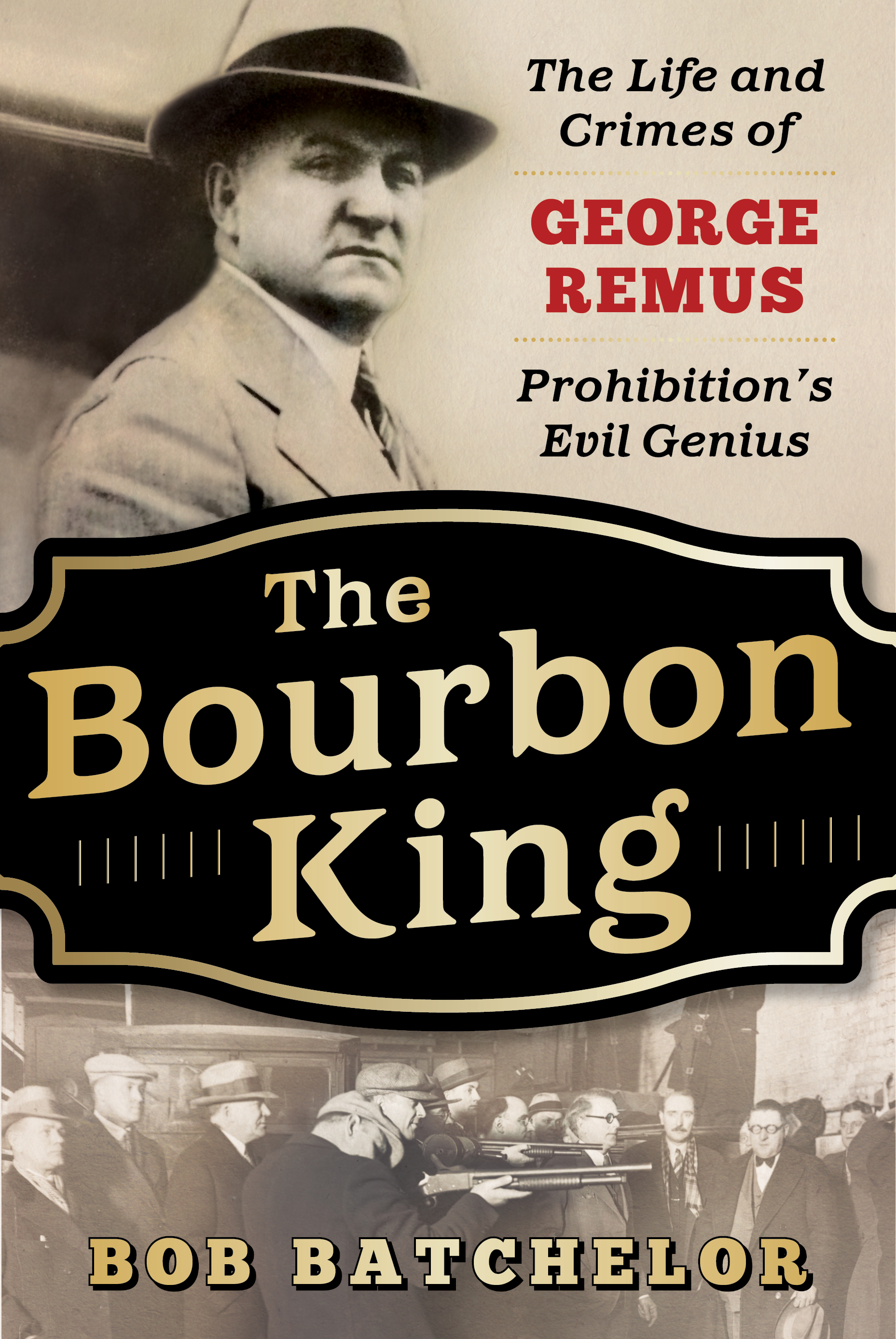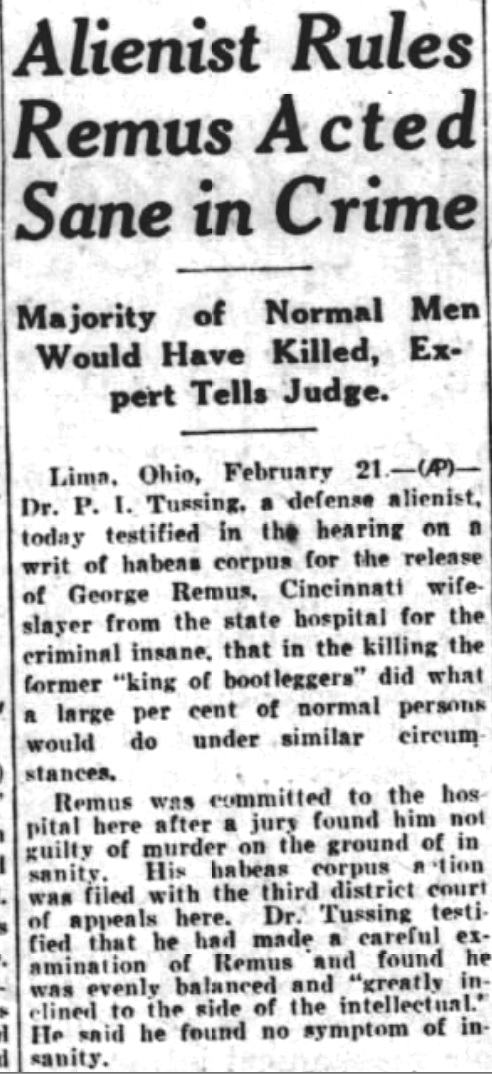The Bourbon King, The Inside Story: George Remus as a High-Flying Defense Attorney
George Remus became a top criminal defense attorney in Chicago. What made him so successful in the courtroom?
George Remus transitioned to attorney at a time when the Chicago economy boomed and new residents poured into the region. His early work centered on labor law, representing several large Windy City unions. The efforts put George in the circle of famed attorney and human rights activist Clarence Darrow.
Both men abhorred the death penalty and Remus gravitated to criminal defense work, just as Darrow had done earlier in his career. What set George apart was his willingness to do anything to win, particularly if he could get a death row sentence reduced to jail time.
When Remus put his considerable intellectual and physical efforts toward a legal career, he ruffled the existing “old boy’s network,” which saw him and his second-rate legal training as an imposition on the establishment they had crafted (he most likely faced a great degree of anti-German discrimination as well). George charged ahead, though, engaging in local Republican politics and serving as a leader in a new legal society aimed to upend the status quo.
No one could deny Remus’s dedication, but his tactics upset many of his colleagues.
George Remus photographed during his time as an attorney in Chicago
If a legal eagle were Remus’s friend, he might refer to George as the “Napoleon of the Bar” as a way of acknowledging his legal acumen. Others, however, called George “weeping pleading Remus,” because his theatrics were viewed as outside the bounds of decorum.
George’s escapades were legendary—from starting fistfights with opposing counsel to drinking down poison in front of the jury to proved his client not guilty (luckily, George had mixed up the antidote and taken it beforehand). Many of Remus’s trials were covered by reporters regionally and nationally. Chicago Tribune journalists knew they could call on George for a hot soundbite.
Although Remus might wildly gesticulate and fly into near rages to defend a client, jurors also remarked about how mesmerizing Remus was in the courtroom. George seemed to have a sixth sense regarding when a well-time antic might persuade a jury or distract them from the prosecution’s case. He possessed a natural charisma and magnetism that defined his legal career.
The Bourbon King, The Inside Story: George Remus's Early Pharmacy Career
Remus during his pharmacy years, pictured standing in front of the nine-story Geo. Remus and J.A. Taggart Office Building at 4520 North Clarendon Avenue in Chicago, near Lake Shore Drive and on the edge of Buena Park and Uptown. Lillian is in the driver’s seat, while Romola is sitting behind her.
George Remus began his career as a pharmacist. In what ways did that job impact his later life?
George Remus’s life as a pharmacist demonstrated his wide-ranging intellect and dedication. He learned the trade “on the job,” but also took coursework to solidify his understanding of the science of that era.
In the late nineteenth and early twentieth centuries, pharmacists were more like doctors (particularly in areas like suburban Chicago where there were extensive immigrant populations). Remus interacted with his customers, dispensing medical advice and treating minor ailments. He even got an optometry certification so he could be called “Dr. Remus.”
The drugstore also served as a center of the local community, so Remus became a well-known figure…and he loved the adulation that came with the title and sense of responsibility. The years in the pharmacy business were crucial in his development and self-identification.
However, the career also turned him off to medicine. He thought much of what stood in for “science” was actually quackery. Yet, at the same time, he embraced his ability to fleece the public by introducing a line of “Remus” brand pills, like others in the era (think “Lydia E. Pinkham’s Vegetable Compound”) that were all the rage. He sold these treatments to large drug wholesalers across the Midwest.
The money Remus made in this line of business and then opening his own drug companies enabled him to see how easily he could make money based on his smarts.
As a pharmacist, Remus also learned a great deal about the law and legal system, which would serve him well later as an attorney and bootlegger. He put this study of drug regulations and setting up pharmacies to work as a bootlegger, always searching for legal loopholes to the Volstead Act, once Prohibition became law.
The Bourbon King, The Inside Story: Why Write about George Remus
How did you discover the story of George Remus, and why did you decide to write a book about him?
Imagine having a topic in your head for 17 years!
I stumbled across George Remus about 17 years ago when Stanley Cutler, an esteemed American historian and scholar, asked me to write about bootlegging for the Dictionary of American History.
Remus’s story was so epic that I couldn’t get it out of my mind. The “Bootlegging” entry had to be concise, so I didn’t get much of an opportunity to expand on the Remus story, but I snuck him in, as well as mentions of Cleveland and Pittsburgh.
Here’s that bit from the essay:
Given the pervasive lawlessness during Prohibition, bootlegging was omnipresent. The operations varied in size, from an intricate network of bootlegging middlemen and local suppliers, right up to America's bootlegging king, George Remus, who operated from Cincinnati, lived a lavish lifestyle, and amassed a $5 million fortune. To escape prosecution, men like Remus used bribery, heavily armed guards, and medicinal licenses to circumvent the law. More ruthless gangsters, such as Capone, did not stop at crime, intimidation, and murder.
— “Bootlegging” Dictionary of American History, 2003
Although researched and written so long ago, I still see bits of my personal writing style that persists. “Pervasive lawlessness” is a stylistic point, as well as the pacing of the sentence.
Later, in 2013, I published a biography of The Great Gatsby, which I had been researching and writing for years. Obviously, the work on the book forced me to continue thinking about this crazy bootleg king, particularly since so many people began writing that he was the inspiration for Jay Gatsby, rather than just one of several.
[Spoiler alert: the link between Jay Gatsby, F. Scott Fitzgerald, and George Remus is an important discussion in The Bourbon King and the beginning of one of America’s great literary mysteries that readers will really enjoy.]
The more I thought about the bootleg king, the more it seemed that no one had really fully captured Remus or put him within the context of American history. His epic tale illuminates and interrogates the early twentieth century, Prohibition, Constitutionality, and many other topics that continue to confound people today.
George Remus also fit neatly into my cultural historian and biographer wheelhouse: big topic, historically significant, and interesting links from that era to what we are experiencing today. I found that there were still many undiscovered aspects to Remus’s story and there were untapped archives, so I barreled ahead.
Starred Review in Publishers Weekly!
The Bourbon King: The Life and Crimes of George Remus, Prohibition’s Evil Genius received a starred review in Publishers Weekly, one of the essential publications in the publishing industry.
“Larger-than-life characters take the reins of this story, a rip-roaring good time for any American history buff or true-crime fan.”
“Batchelor’s action-packed narrative both entertains and informs with its tales of the corruption of President Warren G. Harding’s attorney general, the bootlegging trade, and the public’s oscillating views of Remus and Prohibition in general.”
You can find the complete review at this link!
George Remus, King of the Bootleggers: Insanity and Murder
George Remus, the former King of the Bootleggers, fought to prove that he was sane in February 1928, two months after a jury declared the murder of his wife Imogene “transitory maniacal insanity” and that he should go free.
Read moreStan Lee: A Life Well-Lived -- Excelsior!
“Lee became Marvel madman, mouthpiece, and all-around maestro – the face of comic books for six decades. The man who wanted to pen the Great American Novel did so much more. Without question, Lee became one of the most important creative icons in contemporary American history.”
— Bob Batchelor, author, Stan Lee: The Man Behind Marvel
Read more





